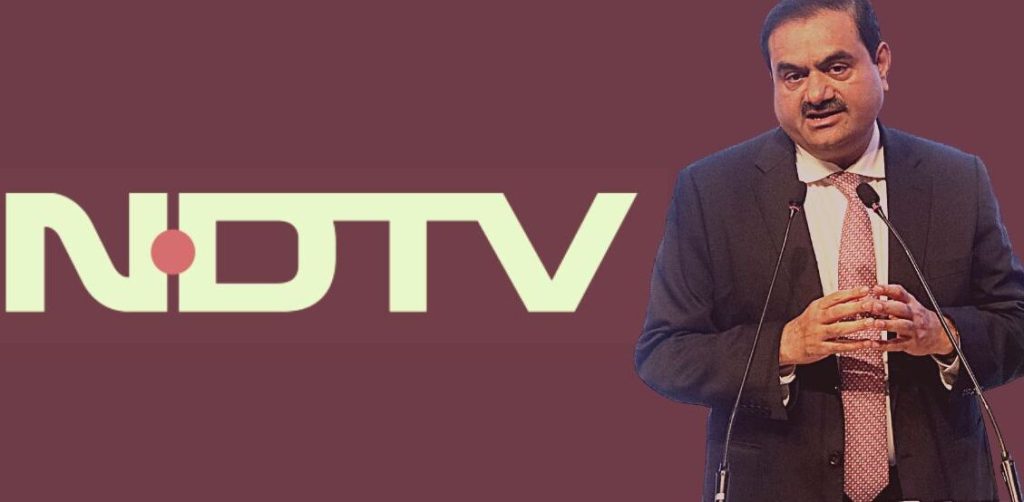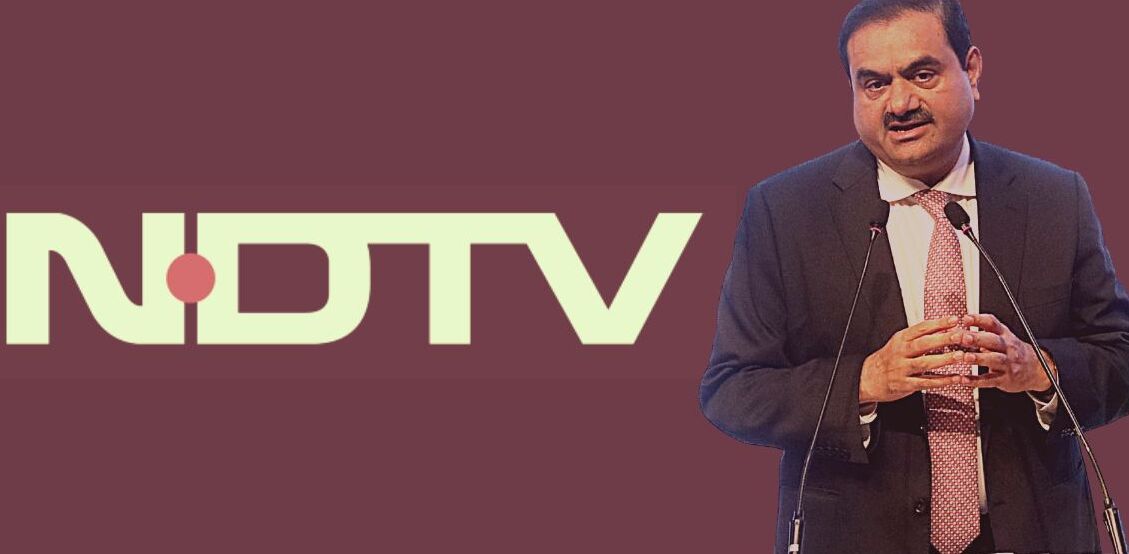
The individual responsible for managing Adani’s brand has resigned from the board of NDTV, a leading news media company in India. The resignation comes amid increasing scrutiny of Adani’s business practices and its relationship with the Indian government.
Siddharth Gupta, who served as a non-executive director on NDTV’s board, resigned on Monday citing personal reasons. Gupta has been associated with the Adani Group for over a decade and was responsible for managing the brand and public relations for the group.
The Adani Group is one of India’s largest conglomerates with interests in ports, power, logistics, and agriculture. The group has been in the news recently over allegations of environmental violations and land-grabbing in various parts of the country. Adani’s proposed Carmichael coal mine in Australia has also faced significant opposition from environmentalists.
The group has close ties with the Indian government, and its founder Gautam Adani is seen as a close ally of Prime Minister Narendra Modi. The Adani Group has been awarded several lucrative contracts by the government, including the construction of a new airport in the state of Uttar Pradesh.
The resignation of Gupta has raised questions about the relationship between Adani and NDTV. NDTV is known for its independent and critical journalism, and its coverage of Adani has been particularly critical in recent years. The news media company has reported extensively on Adani’s business practices, including its controversial deals with the government.
NDTV has also been the target of government scrutiny, with several cases of alleged tax evasion and money laundering filed against the company and its founders. The government has denied any political interference in these cases, but critics argue that the cases are part of a broader crackdown on dissent and critical voices in the country.
The resignation of Gupta has fueled speculation that Adani may be trying to influence NDTV’s coverage of its business practices. However, both Gupta and Adani have denied any such intentions. Gupta stated that his resignation was purely a personal decision and had nothing to do with his association with Adani. Adani, in a statement, said that it respected the independence of the media and had no intention of interfering in NDTV’s editorial policies.
The resignation of Gupta highlights the challenges faced by media companies in maintaining their independence and credibility in an increasingly polarized and politicized environment. Media companies have come under increasing pressure from governments and powerful corporations, who often use their influence to shape the narrative and suppress critical voices.
NDTV has a long history of independent journalism and has won several awards for its investigative reporting. The news media company has also faced several challenges in the past, including a government ban on its coverage of a terrorist attack in Mumbai in 2008.
The resignation of Gupta has sparked a debate about the need for greater transparency and accountability in the relationship between media companies and their corporate sponsors. Critics argue that media companies should disclose their financial relationships with their sponsors and ensure that they do not compromise their editorial independence.
The controversy surrounding Adani’s business practices has also highlighted the need for greater scrutiny and regulation of corporate behavior. The Indian government has been criticized for its lax regulatory environment, which has allowed corporations to engage in unethical and illegal practices with impunity.
The Adani Group has denied any wrongdoing and has stated that it is committed to sustainable and responsible business practices. However, critics argue that the group’s actions speak louder than its words and that its business practices are in conflict with its public commitments.
The resignation of Gupta is unlikely to put an end to the controversy surrounding Adani’s business practices. The Adani Group is facing increasing scrutiny from regulators, investors, and civil society organizations, who are demanding greater transparency and accountability.
The case also highlights the importance of a free and independent media in holding corporations and governments accountable.
Read More on Adani










